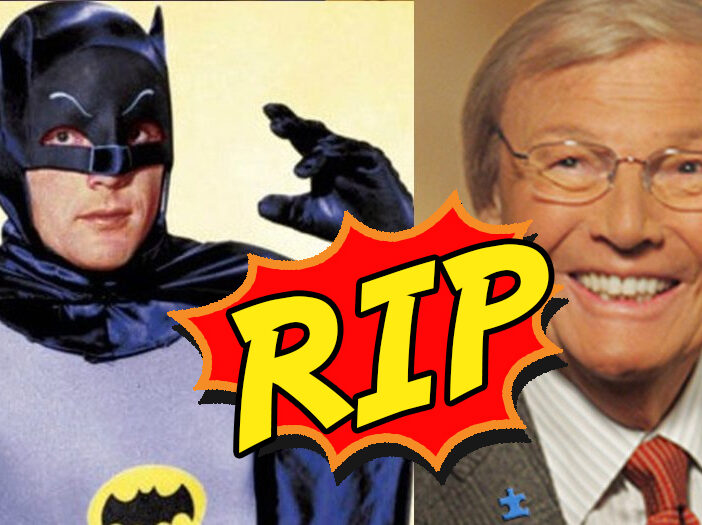
In a PBS special that touched on the show, Ward noted that West’s slow, portentous delivery was occasionally designed to eat up screen time, thus cutting into his co-star’s dialogue.
With actors like Cesar Romero (Joker) and Burgess Meredith (Penguin) comprising Batman’s rogue’s gallery of villains, the show became an almost instant success, urging viewers to tune in for the next episode at the “Same Bat-time.” The series spawned a movie — pitting the Dynamic Duo against a team-up of villains — before being canceled after three seasons due, primarily, to its high production costs.
The show came to be viewed with some contempt in comic book circles, especially after the darker vision of Batman became dominant in the ’70s and ’80s.
West found serious film work scarce following the series, though he remained in demand for personal appearances as the character and voice work, including a recurring stint on “Family Guy” and animated versions of Batman. Other roles ranged from “The Happy Hooker” and “Hooper” to the Michael Tolkin-directed movies “The Rapture” and “The New Age.”
West wrote two books, one, titled “Back to the Batcave” and published in the mid-1990s, in which he said that he was “angry and disappointed” not to have been offered the chance to reprise the role in the Burton movies, despite being 60 at the time. The attendant publicity seemed to put West back on the cultural radar, at least as a source of nostalgia.
Born William West Anderson in 1928 in Walla Walla, Wash., the actor later adopted his stage name and began his career in earnest when he moved to Hawaii in the 1950s to star in a local children’s program.
He is survived by his wife Marcelle, six children, five grandchildren, and two great-grandchildren.
(SOURCE: VARIETY)

